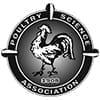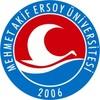Check out what is new in Poultry Industry
Find the best technical articles, forums, and videos on Poultry Industry at Engormix. Enter now and interact with the world's largest agricultural social network.
I. INTRODUCTION To introduce myself, I am a veterinarian by profession, a poultry veterinarian by accident and I am a field veterinarian by choice. My role as a field veterinarian (along with other professionals and the management team) is to turn expensive feed into profitable meat as efficiently as possible. Thus, my focus on-farm is on bird health and flock management to achieve the best biological performance we can. But along with that brief is the ‘social...
Comments : 0
Recommendations: 1
.jpg&w=3840&q=75)
Sara Orlowski (University of Arkansas) talks to Sam Shafer (PSA) about her research. She is studying several generations of broilers and has been working to select the desirable traits that contribute to a low water conversion ratio (LWCR), making the bird more water efficient. Let's Squawk About It is a monthly interview segment by the Poultry Science Association....
Comments : 0
Recommendations: 2
.jpg&w=3840&q=75)
Chanelle Taylor (Cargill) talks to Sam Shafer (PSA) about Highly Pathogenic Avian Influenza (HPAI) and how it has severely impacted the poultry industry's birds, products, and the mental health of workers. Let's Squawk About It is a monthly interview segment by the Poultry Science Association....
Comments : 0
Recommendations: 0
.jpg&w=3840&q=75)
Kevin Downs (Middle Tennessee State University) and Joseph Gulizia (Auburn University) talk with Sam Shafer (PSA) about the results of providing poultry with different colored feed and how that impacts the birds' feeding preferences. They also discuss what this study means for further research on this topic. This is a follow-up from a previous episode regarding the findings of this study....
Comments : 0
Recommendations: 3
INTRODUCTION Birds may be exposed to a variety of potential stressors during preslaughter. The adverse effects of these factors and their combinations may range from mild discomfort to death (Petracci et al., 2006). One such factor is feed withdrawal prior to transport to the slaughterhouse (Petracci et al., 2010). Feed is withdrawn from poultry prior to slaughter to reduce the potential of carcass contamination with crop and intestinal contents (Bilgili, 2002). However, when...
Comments : 0
Recommendations: 1
...
Comments : 3
Recommendations: 1
...
Comments : 0
Recommendations: 1
...
Comments : 2
Recommendations: 1
.jpg&w=3840&q=75)

Best Practices for Sustainable Waste Management and Environmental Solutions
Suggested link
Introduction Several factors can influence animal production, which can be beneficial or harmful to each species. In addition to the ambience, nutrition and sanity, the genetic characteristics of the breeds/lineages also cause changes in the adaptation and performance of the animals (Azevedo, Fosse Filho, Pereira, Andrade, & Júnior, 2016). In the current market there are three genetic groups of poultry according to their ability to produce: heavy poultry, light laying...
Comments : 0
Recommendations: 0
There has been a lot of talk and discussions on the benefits of reducing or completely removing the use of antibiotics in livestock, particularly in poultry and swine, here in Asia and yet, so far, only a few countries have implemented regulations. As many antimicrobials are used in the livestock sector, studies have suggested that antimicrobial resistance (AMR) may be widely prevalent. Regulation on antimicrobial use is either weak or non-existent, complicated by sub-optimal enforcement and...
Comments : 0
Recommendations: 3
INTRODUCTION Brazilian poultry industry is highly relevant for the country economy. In 2016 a total of 13 million tons of broiler meat was produced, and nearly 35% was exported. (ABPA, 2017). Broiler production is carried out in several variations of house design. However, most of the production in the integrated system is done in open-sided houses with lateral polypropylene curtains, and with solar orientation East-West. The inside cooling is a combination of natural and forced...
Comments : 0
Recommendations: 0
INTRODUCTION According to data from the Brazilian Animal Protein Association (ABPA, 2018), in 2017 the Brazil occupied the 2nd place in the world poultry meat production, behind only the United States of America. However, Brazil remains in first place in world exports, destining more than 30% of chicken meat production to exportation. Following the legal recommendations of the Ministry of Agriculture, Livestock, and Supply, through the supervision of the Federal Inspection...
Comments : 1
Recommendations: 2
INTRODUCTION Major health problems of the poultry industry have certain effects on egg production. Especially, infectious diseases which may drop in egg production and egg quality by affecting the reproductive system directly and the health status of poultry indirectly (Clauer, 2009). Gallibacterium anatis (G. anatis) has been known to be a part of the normal microflora of the lower genital and upper respiratory tract (Bojesen et al., 2004; Jones et al., 2013; Lawal et...
Comments : 0
Recommendations: 1


Changing Feed Industry Imperatives Call For A Closer Look At On-Site Aflatoxin Test Methods
Suggested link
INTRODUCTION Salmonella and Campylobacter continue to be pathogens of concern associated with poultry and poultry products, which raise a public health issue globally (Antunes et al., 2016). As per the foodborne illness source estimation reports for 2016, Salmonella and Campylobacter are responsible for about 18 and 64% of poultry-related foodborne illnesses in the United States, respectively (IFSAC, 2018). With the increasing episodes of illnesses because of these pathogens,...
Comments : 0
Recommendations: 0
INTRODUCTION Consumption of poultry meat has increased significantly in the United States and currently ranks as the highest consumed among meat species (National Chicken Council, 2020). With increasing chicken meat consumption, greater number of broilers are being raised and processed. Foodborne pathogens Salmonella and Campylobacter are commensals in broiler gastrointestinal tract and, in most cases, do not cause any disease in the birds. Current poultry processing system...
Comments : 0
Recommendations: 0
INTRODUCTION Substantial consumer pressure demonstrates that some practices adopted by the poultry industry should be revised as soon as possible, particularly those related to the management of debeaking methods. Pecking committed by dominant bird causes prolonged stress, decreased feed intake and worsening feed conversion, and may even affect internal and external egg quality (Vieira Filho, et al., 2016). Also, whole beak pullets waste and select feed grains, compromising...
Comments : 0
Recommendations: 0
INTRODUCTION In the last decade, Brazil has recorded a 10.56% increase in the number of poultry (broiler, turkey and quail) slaughtered in establishments registered under the “Serviço de Inspeção Federal” (SIF - Federal Inspection Service), increasing from 4,795,965,464 birds in 2010 to 5,302,510,470 birds in 2019 (MAPA 2020). This growth is the result of the competitive strength of poultry farming in the country, based on low production costs,...
Comments : 0
Recommendations: 0


Speculation over the Provisional Ruling on Anti-dumping Duties of Lysine by the EU Against China
Suggested link
INTRODUCTION Housing systems and mating strategies have become a global focus of concern as these are being referred one of the most cogent factors in overall performance of broiler parent stock (PS) in progressive poultry (Whitehead et al., 2016). Hence, now a days, the scientists are striving to probe the exact impact of keeping place of birds on their productive and reproductive performance. Despite of many advantages and disadvantages, two housing systems i.e., floor and...
Comments : 0
Recommendations: 0
Introduction Soybean meal (SBM) is the most important and preferred source of quality protein in animal feeds (Banaszkiewicz, 2011). Among the oil seeds, SBM contains the highest crude protein (CP) and has the best AA profile, with only 6% crude fibre (Dei, 2011). The AAs in SBM are highly digestible by poultry (Newkirk, 2010). Based on the CP content, SBM can generally be classified as high protein (47% - 50%), or low protein (44% - 46%). Popescu & Criste (2003) suggested...
Comments : 1
Recommendations: 1











.jpg&w=3840&q=75)




.jpg&w=3840&q=75)



















